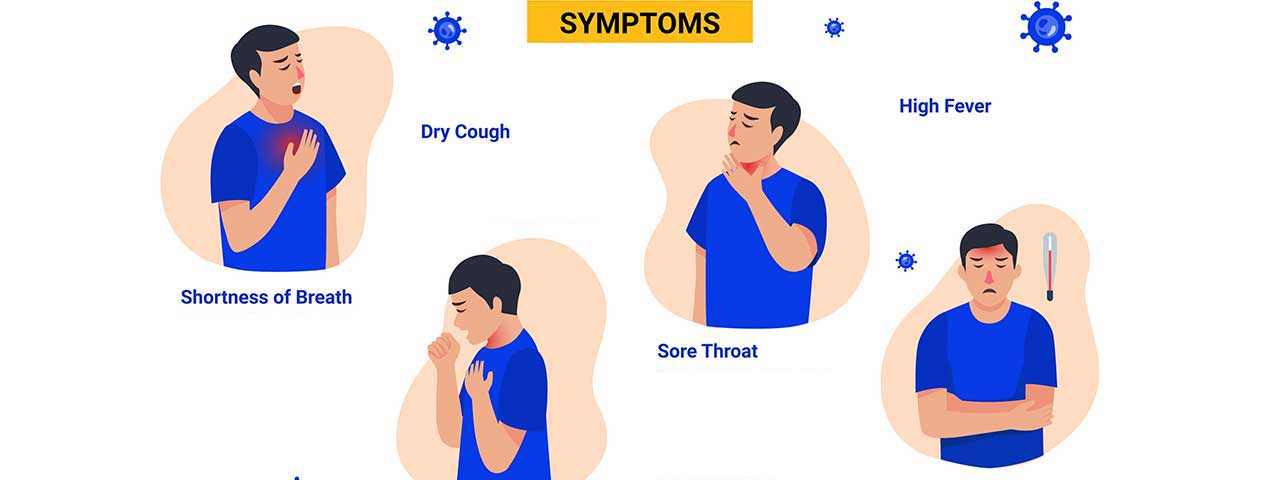Coughing is a natural and essential reflex of the respiratory system. It serves as a protective mechanism to clear the airways of irritants, mucus, or foreign particles. Coughs can be classified into various categories based on their characteristics and underlying causes.

- Productive Cough: This type of cough produces mucus or phlegm. It often occurs with respiratory infections like the common cold, bronchitis, or pneumonia, as well as with chronic conditions like chronic obstructive pulmonary disease (COPD).
- Dry or Non-Productive Cough: A dry cough produces no mucus or very little. It can be caused by irritants, such as smoke or dust, or be associated with conditions like asthma, allergies, or gastroesophageal reflux disease (GERD).
- Acute Cough: Acute coughs typically last less than three weeks and are often related to viral infections, like the flu or a cold.
- Chronic Cough: When a cough persists for more than eight weeks, it’s considered chronic. Chronic coughs can result from a range of conditions, including postnasal drip, asthma, GERD, or even certain medications.
- Paroxysmal Cough: Paroxysmal coughing refers to sudden, intense, and uncontrollable fits of coughing. It’s often seen in conditions like whooping cough (pertussis).
- Barking Cough: This harsh, “barking” sound may indicate croup, a viral infection that affects the larynx and trachea, particularly in children.
- Wet or Chesty Cough: This cough is characterized by the presence of mucus or phlegm in the airways. It is often associated with respiratory infections or conditions involving excess mucus production.

Coughs can be bothersome, especially when they interfere with sleep, daily activities, or quality of life. The treatment of a cough depends on its underlying cause. Diagnosis is based on thorough case taking, clinical examination and necessary investigations.
While some coughs may resolve on their own, others may require specific interventions, such as medication or addressing the underlying condition. Persistent, severe, or chronic coughs should always be evaluated by a healthcare professional to identify the cause and determine the most appropriate course of treatment. Homeopathic management of cough involves a holistic approach that takes into account the individual’s unique symptoms, constitution, and the underlying cause of the cough. Homeopathic remedies are selected based on the principle of “like cures like,” where a substance that can produce similar symptoms in a healthy person is used to treat those same symptoms in a person who is ill.

Here are some common homeopathic remedies for cough:
- Drosera Rotundifolia: This remedy is often used for dry, spasmodic coughs that are worse at night. It may be accompanied by a tickling or scraping sensation in the throat.
- Bryonia Alba: Bryonia is indicated for dry, painful coughs that worsen with movement or deep breathing. The person may also experience chest pain with the cough.
- Pulsatilla: Pulsatilla is suitable for a loose, moist cough with yellow or green mucus that changes throughout the day. It’s often used for coughs associated with a cold.
- Rumex Crispus: This remedy is used for a persistent, dry, and teasing cough that is triggered by cold air or exposure to drafts.
- Spongia Tosta: Spongia is helpful for dry, barking coughs with a dry, constricted feeling in the throat. It may be used for croup or laryngitis.
- Hepar Sulphuris Calcareum: Indicated for a rattling cough with thick, yellow or green mucus, especially in cases of respiratory infections that are slow to resolve.
- Antimonium Tartaricum: Antimonium Tart is used for a rattling, productive cough with difficulty expectorating mucus, often seen in bronchitis or pneumonia.
- Arsenicum Album: Arsenicum is beneficial for coughs with a burning sensation in the chest, wheezing, and restlessness. It’s often used for asthmatic coughs.
- Kali Bichromicum: Indicated for a thick, ropy, yellow-green mucus that is difficult to expel. It may be used for chronic bronchitis.
- Natrum Sulphuricum: Useful for coughs that worsen in damp weather or after exposure to damp conditions. It’s often used for asthma and bronchitis.
Homeopathic treatment is highly individualized where a homeopathic practitioner considers not only the type of cough but also other associated symptoms and the person’s overall health and constitution when selecting a remedy. Homeopathic remedies are typically administered in highly diluted forms, and they are generally considered safe when used as directed.


 Deal 1
Deal 1
